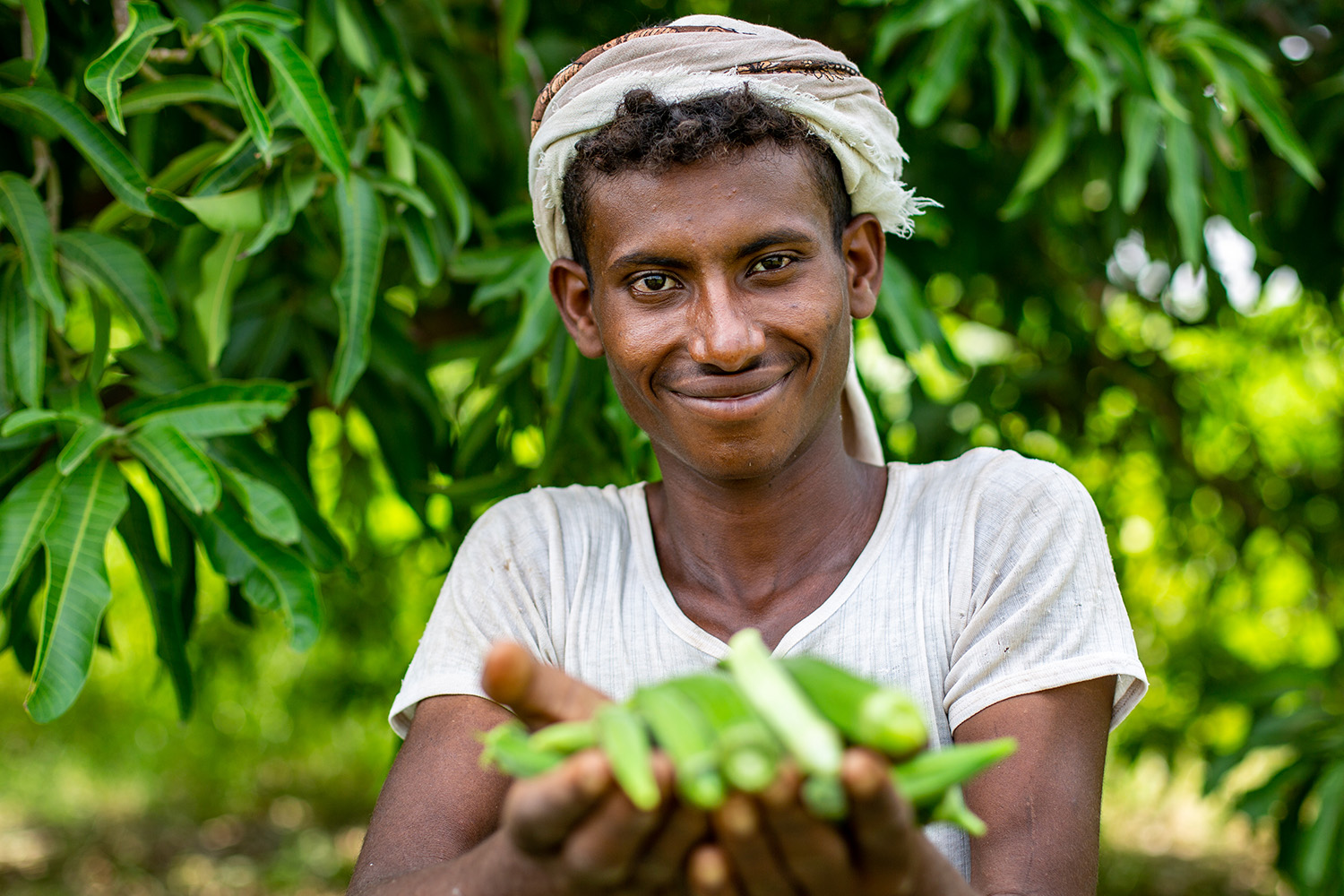The Public Works Project (PWP) has demonstrated remarkable adaptability and resilience in addressing the multifaceted challenges faced by Yemen. By focusing on supporting local food production and mitigating the impacts of climate change, this initiative stands as a testament to the effectiveness and efficiency of donor-supported interventions in complex environments.
The project has not only alleviated the immediate suffering of those affected by the current conditions but has also contributed to addressing fundamental issues of food insecurity through two primary strategies:
- 1. Reducing the difficulty of access to income sources and increasing the purchasing power of Yemeni families. This is achieved by creating job opportunities for both skilled and unskilled labor through the establishment of essential infrastructure and community service projects. The initiative ensures that a minimum of 35% of labor intensity is employed, thereby addressing the needs of impoverished and affected communities, particularly those hosting displaced individuals, who are given top priority in securing job opportunities in both rural and urban areas.
- 2. Mitigating the degradation of infrastructure and public utilities while improving the quality of basic services. The project implements initiatives that enhance living standards and public health, such as road paving, water and sanitation services, and agricultural support projects aimed at expanding cultivated land areas. This approach not only addresses immediate needs but also fosters long-term resilience by reviving small local consultants and contractors, enabling them to operate nationwide under varying conditions.
Enhancing Food Security
Enhancing food security is paramount given the challenging economic and living conditions in Yemen. High poverty and unemployment rates, coupled with poor service levels, pose significant hurdles, compounded by a dramatic contraction of 52% in real GDP per capita over the past seven years. Consequently, two-thirds of the population, or approximately 21.6 million Yemenis, require humanitarian assistance. Rising commodity prices and climate change further exacerbate these issues, placing food insecurity at the forefront of Yemen's challenges. More than 17 million people are experiencing food insecurity.
In response, the Public Works Project has adapted its activities to align with the community's needs and the financiers’ requirements. This adaptive approach has led to significant advancements in the project's interventions, addressing food insecurity and climate change impacts. Droughts, irregular rainfall, and destructive torrential rains have severely impacted agricultural production, necessitating innovative solutions to mitigate these effects.
The Public Works Project's interventions now include employing large numbers of workers to provide them with sources of income for purchasing food, the construction of rainwater drainage channels for optimizing irrigation and expansion of agricultural areas and building of protective walls to safeguard agricultural land from erosion and flood damage. These efforts have had a positive impact on the lives of farmers reliant on their land for sustenance and livelihood throughout the year.
Infrastructure projects that touch people's daily lives, such as paving and improving roads, water and sanitation projects, school rehabilitation ...etc., are at the forefront of the Public Works Project’s Management Unit’s plans because they play a pivotal role in providing decent livelihoods for Yemenis and facilitate access to services – all are goals consistent with the donor community’s focus areas. These projects also contribute to taming inflation rates and increasing basic commodities prices




